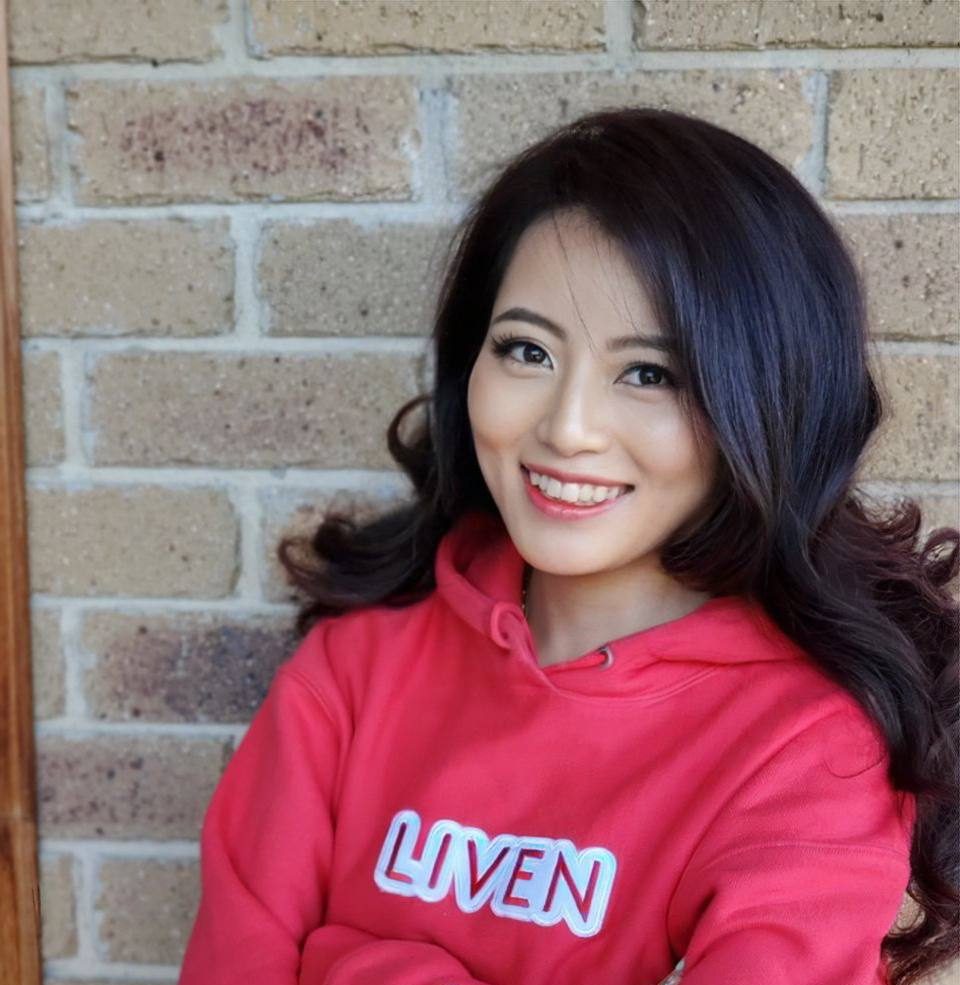Grace Wong couldn’t tell her mum about Liven, but she knew exactly what to say when she pitched to KiteVC Bill Tai.

Grace Wong will share her full story live at the Forbes Australia Business Summit. You can secure your ticket here.
Grace Wong, co-founder of Liven, knew one day she would meet Bill Tai, the kite-surfing venture capitalist who was one of the early founders of Canva. When she did, she had prepared what she was going to say to him to get him to fund the business.
Liven, a food voucher system that lets you prepay for a particular brand or buy food dollars to spend at any one of the 5000 restaurants it has signed up, is the startup she built with her brother William and Shahrooz Chowdhury.
She says she looked up ‘tech startup’ on the internet and Canva co-founder Melanie Perkins’ name came up “and that led me to Bill Tai”, says Wong in an interview with Forbes Australia.
“I knew what I would say to him when I met him, and I knew I would meet him one day. I was going to tell him that I am his next Melanie from Australia and how I understood his three core values: Stand for something greater than yourself; Make the world better than when you entered; and empower others. I would tell him: ‘I have a startup that will amplify all of your core values’.”
Wong says she and her brother at the time were both lawyers, “but we couldn’t see any creation of value in what we were doing”.
“We were just moving money around and not creating anything. We were gamers. We loved playing games, and we see the world through the lens of gaming.
“As a gamer … we learned more about how centralised finance works and how the community-driven gaming economics works to help everybody lift up together. With this kind of theoretical mechanism, we realised we could create a world where every community could have their own dollar system, their own currency, their own money that was powered by the community. But you need a lot of different technology for this to work.
“We thought we would start with hospitality. Food and eating can be like a game. We could then demonstrate how it could work and that’s how we started.”
Wong says when she did meet Tai at WestTech in 2017, he understood the concept of Liven immediately.
“He understands gaming and currency in gaming, and I ended up going to the Extreme Tech Challenge and I ended up winning and met some world-changing leaders there. It’s a crazy network. I told them my story and how I planned to tackle this broken world. They believed in me and funded me and that’s how Liven started.”
Where did the inspiration come from?
Wong credits her mother for inspiring her children to try to make a difference in the world.
“I’m sure everyone has a mum that is special to them, but my mum gave us all the passion and the dream and the perseverance that we need today to build what we are building. She wanted to change the world to be a better place with no hunger and poverty, a more equitable world. We grew up hearing about doing something about that. She told us we were living in the land of opportunity, in Australia, and she said if you put your mind to it, everything is possible.”
Wong says for everything she does, there is a mission and a vision. “The mission has always been empowerment, have your own currency, have your own economy, then build your own community, not just involving the customers, but also the suppliers.
“Customers who buy from a brand just buy something, they don’t contribute in any other way, even though they could, but the relationship is really just transactional. Same with suppliers, they just sell to the brand. Investors, just give money. If they could all have alignment and contribute to the network, you can build your brand faster in a more economically efficient way. You don’t need third-parties to take value away.
“That way … everybody has the same power to build their own world. Right now, our world is one where bigger parties control our financial position. We rely on a centralised banking ecosystem. If you are small, you don’t get financed easily. A big company has unlimited capital, economies of scale, unlimited funding.
“It comes down to access to capital, access to your own customer and data and then you can control your future, meaning you know what revenue is coming in, what future you can build, and you know what resources you need and you are not relying on getting it from the bank, but from the people, and that is what we call mission-aligned capital.”

Wong says that back in 2015, she and her brother were still lawyers full time, “but we worked every single night developing Liven”.
“We couldn’t tell our mum what we were doing. She would have a heart attack if she knew we were going to both quit our jobs on the same day and have no money coming in. We would pretend to go to sleep and then work through the night. At weekends, I must have gone to 1000 restaurants, walking around Melbourne, and they would say ‘you want to talk, not eat?’, so I would end up eating a lot, and they were busy, but I needed to explain it to them. We were so naïve.”
Wong says her experience with Bill Tai was that “he likes founders who are not stupid, but naïve, people who feel they can do everything, but don’t really know the industry enough to get scared”.
“I never realised how hard it would be to sign up restaurants. I didn’t understand why they wouldn’t, actually. I thought I would have millions of restaurants signed up in a few months, then I realised that was not the case. I was learning.”
She says that her experience now of meeting with people in the hospitality industry is that “many of them are small business owners who got into it because they are passionate, not necessarily financially acumen-minded people”.
“They work so hard, seven days a week, but their business model is sometimes not so well done. It is not a cash-cow business where if you put $1 in, you get $10 out. It is not like that. Then the giants come in and take 30% to 40% away to give them the transactional customer. They have to keep giving this margin away, so they need more capital and then in the end 70% of restaurants fail in their first one or two years. And it is really fragmented, so we created a revenue forwarding loyalty program.”
Liven allows customers to purchase ‘brand’ dollars or ‘food’ dollars in advance of buying the food. Brand dollars can be spent with that particular brand and food dollars can be spent at any Liven partner. They currently operate in 5000 restaurants, in six countries. The voucher purchases and spending can also bring rewards.
“It’s an underwriting mechanism where even if the restaurant closes down, Liven will enable you to continue to use your dollars,” Wong says.
The design builds loyalty, financial commitment and trust, creating ‘super fans’ that can help ease cash flow problems and build customer data. It helps to empower the restaurant, decrease food waste and increase efficiencies, Wong says. People pay their money up front, and it increases their engagement and creates a simple, automated and seamless system for the restaurant to have a relationship with their customers.
TIPS WHEN YOU ARE PITCHING
- Don’t talk too much. Watch the time and stick to the time constraint. Everybody would love to talk all day about their idea, but you have to manage your time.
- Remember there is no one successful formula. Read your audience, understand them and know them. Some will want a very simplified explanation, while others will want greater depth. It’s not easy to know your audience but it will bring a better outcome if you know how they like to be spoken to. Learn how to articulate what you do in different ways, so people engage with you on their terms, to understand and appreciate what you are talking about.
- Find the ‘right’ investor. Do you want ‘any’ money or ‘smart money’? Find the people who are smart who understand your vision.
Wong says it is so important to believe in yourself, but to be humble and grow with stealth, because otherwise you can attract the wrong talent and create the wrong culture and build a lot of competition.
“For me, the founders, and for Liven from the beginning, we wanted to build the most valuable company in the world, not by valuation, but by being the underlying infrastructure layer that will help others to create their own value and grow their value in the most efficient way. We wanted to be value engineers in the beginning.
“If this world is a game, it is designed by a powerful mechanism. We are going after those guys fundamentally, so we don’t want to let them know how we are doing this. If you focus on singular innovation, and the singular thing that you want to do is impact, then you don’t need anything else, and the company can keep growing by stealth.”
West Tech Fest will return to Perth this year from Sunday 4 December to Friday 9 December, headlined by Peter Vesterbacka, Rodric David, Grace Wong, Young Sohn and Bill Tai as lead conference speakers.



